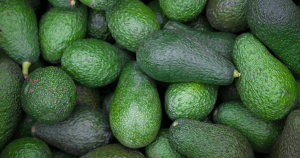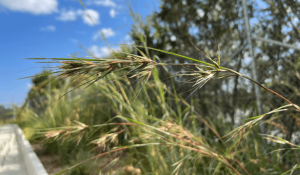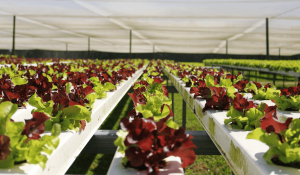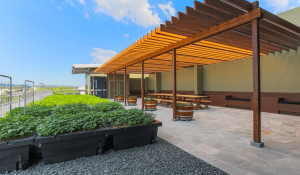Us Aussies love our food! Whether it’s a Parmi at a pub on a hot summer’s day or some tasty seafood at Christmas, we love it all. So, how can we waste 7.6 million tonnes of it each year (FIAL, 2020)? Especially when 70% of it is perfectly edible (FIAL, 2020). Excessive food waste harms our environment. Up to 10% of global greenhouse gases come from food that is produced and not eaten, and we know that greenhouse gases are bad for the planet (UNEP, 2021).
Considering that most wasted food in Australia comes from our own homes (FIAL, 2020), we could all learn to be greener in the kitchen and reduce our food waste. But how do we do it? Well, Green Endeavour has your back with ten easy and helpful tips.
1. ‘Upcycle’ your leftovers
Ever reheated leftovers and found they are too dry, or the flavour has just disappeared? A few ingredients to bring back the flavour and moisture are sour cream, salsa, mayo, dressing, pasta sauce, oil and more. Get creative! Chuck leftover mince in a pie or add leftover rice into a DIY Fishbowl. Eating leftovers doesn’t have to be a bore. It will save you money and reduce your food waste.
2. Get creative
Expanding on the previous point, getting creative in the kitchen can help you utilise ingredients that would have just sat in your fridge until they went off and were discarded. It doesn’t have to be anything ground-breaking. Some ideas include recycling brown and bruised bananas in banana bread or old mushy berries to make jams. Green Endeavor Director Graeme Twine also suggests drying out carrot peels and blending them into powder for seasonings. The possibilities are endless and including your kids and or friends/family in the process makes a fun activity.
3. Use as much of the product as possible

Don’t you go throwing away those precious scraps! Experienced foodies Rachel and James, two of our Suncoast Fresh Account Managers, believe the tastiest veggie broths are made from coriander stems, onion scraps, potato skin and carrot tops. You can even make a delicious pesto using Broccoli stems. If you want to spice up a cocktail (or mocktail), why not add some dehydrated orange peel? Think of fruits and veggies as a whole. Almost everything can be re-purposed.
4. Grow your own
As well as transforming veggie scraps into something else, you can also grow veggies from their scraps. Things like Lettuce, Spring Onions, Bean Sprouts, Avocados and more! One of the easiest is Celery. All you need to do is cut off the base and place it in a bowl of warm water in direct sunlight. As new leaves sprout from the middle, let them gain thickness for a week, then transfer them into a pot of soil and watch it grow (Cancer Council NSW, 2020)! Growing your own food provides more incentive to eat it, too, and you’ll think twice before disposing of th
at cucumber that took weeks to grow! You can also use composted soil in your garden, which leads to the next tip.
5. Be mindful of expiration dates
Firstly, we need to understand that ‘use-by’ and ‘best before’ dates are different. If food is past the use-by date, it can’t be eaten, but if it’s past the best-before date, it is technically safe to eat as long as it is not damaged, deteriorated or perished. So, if it’s past the best-before date and doesn’t look or smell bad, chances are it is safe to eat.
6. Compost

Things like fruit and veg scraps, eggshells, coffee grounds and more can be added to your at-home compost bin instead of ending up in a landfill. The nutrient-rich compound can then be re-used as mulch for your gardens or indoor plants. If you’re worried about the smell technically, if you compost correctly (50% green, 50% brown), it shouldn’t smell. But thr
owing some sawdust in there usually gets rid of the odour. It is also important to turn and mix your compost regularly to ensure you aerate moist pockets, otherwise, you will have a flock of maggots join the party. Although maggots are well, kind of gross, they actually play a large role in breaking down nutrients. But if there are too many, we’d suggest upping your brown matter and lowering the food as that’s what they’re feasting on. Another tip is to add 1 cup of lime juice. This is not something you do regularly as it can unbalance the PH in the compost, so only do it when and if the maggot party is getting out of control.
7. Make friends with your freezer
You can freeze just about anything to prolong its shelf life. Things like bread, fruit, chillies, ginger, herbs, meat, and fish. If these foods are frozen before the use-by date and packed in an airtight container or packaging, they will be all good to go. Tip: Make sure you defrost slowly in the fridge to avoid bacteria! Prolonging the shelf life means you can take your time to use certain things and plan out your meals, which flows through to our next tip.
8. Eat and buy mindfully
Planning your meals saves you time and money in the long run. Knowing exactly what ingredients you need takes the mystery out of grocery shopping and working out portion sizes also cuts down on wasted products. Most of us carry our phones everywhere. Quickly jotting down a shopping list to ensure you are buying mindfully and only what you need helps reduce overconsumption and unnecessary spending.
9. Share and donate
See if your neighbour, family member, friend or pet wants to take anything off your hands. Or get your friends together and throw a dinner party! You could even donate to food relief organisations and give back to someone in need. While convenient, the end destination for wasted food doesn’t have to be the bin.
Here are some links!
10. East seasonally and support local
Courtesy of our hardworking farmers, almost every fruit and veg is in arms reach no matter the time of year. But, in-season fruits and vegetables will likely last longer in your fridge or fruit bowl, requiring less travel/transport time (Food Bank, 2023). For example, most oranges we buy in Summer are from the US, meaning by the time they arrive in Australia, they aren’t as fresh, decreasing their shelf life, flavour, quality, texture and affordability. Supporting local food producers also reduces wasted food as it minimises the travel time of the products. Overall, additional travel time increases the chances of the food being damaged and discarded, and when you shop in season and locally the produce taste better, is a lot more affordable, and its better for our planet. Eating in season is a win-win for all!
Now we know this is a lot to take in and not something that can be achieved overnight. However, even being more mindful of food wastage and implementing a few of these small changes will make a massive difference.
References:
Cancer Council NSW. (2020, September 1). How to regrow vegetables from scraps. Cancer Council NSW. Retrieved February 3, 2023, from https://www.cancercouncil.com.au/news/how-to-regrow-vegetables-from-scraps/#:~:text=Cut%20off%20the%20celery%20and,into%20a%20pot%20of%20soil
FIAL. (2020, January). Reducing Australia’s food waste by half by 2030. FIAL. Retrieved February 3, 2023, fromhttps://www.fial.com.au/sharing-knowledge/food-waste
Food Bank. (2023, February 1). Reduce food waste tips for you. Foodbank. Retrieved February 3, 2023, from https://www.foodbank.org.au/reduce-food-waste/?state=qld
UNEP. (2021, March 4). UNEP Food Waste Index Report 2021. UNEP. Retrieved February 3, 2023, from https://www.unep.org/resources/report/unep-food-waste-index-report-2021#:~:text=Estimates%20suggest%20that%208%2D10,both%20people%20and%20the%20planet



